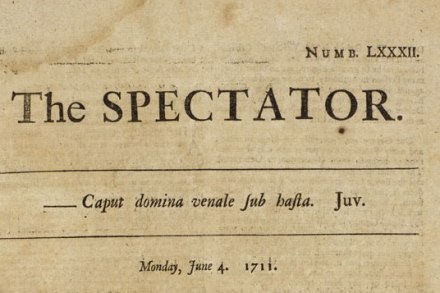The radical history of The Spectator
A newspaper – it would be more than 100 years before it became a magazine – calling itself a spectator of events, while consistently standing up for individual freedom, was bound to fall out with its readership from time to time. In the early years, under the editorship of its Scottish founder, Robert Rintoul, The










